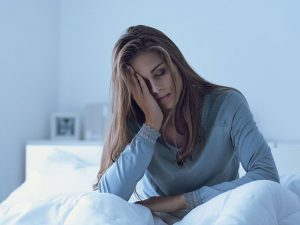Signs You May Not Be Getting Enough Sleep
Are you feeling tired all the time? Do you find yourself dozing off at your desk in the middle of the day? If so, you may be suffering from sleep deprivation. This is a very common problem, and it can have serious consequences for your health and productivity. Let’s look at the signs and causes of sleep deprivation and what you can do to get more restful sleep.

- How much sleep should I be getting?: Most people (adults) need between 7-9 hours of sleep per night. If you find that you are constantly tired and can’t seem to get enough rest, it may be time to make some changes to your sleep habits.
- What causes sleep deprivation?: There are many potential causes of sleep deprivation, including:
- Poor sleep habits – Going to bed and getting up at the same time each day, avoiding caffeine and alcohol before bed, and maintaining a relaxing bedtime routine can help promote better sleep.
- Stress – Chronic stress can lead to difficulty falling or staying asleep.
- Illness – Infections, pain, or other medical conditions can interfere with sleep.
- Sleep disorders – Disorders such as insomnia, restless leg syndrome, and obstructive sleep apnea can disrupt normal sleep patterns.
- What are the signs of sleep deprivation?: There are many signs that you may not be getting enough sleep. If you experience any of the following symptoms, it is a good idea to make some changes to your sleep habits:
- You are having difficulty focusing or concentrating
- You are feeling irritable or impatient
- You are having trouble remembering things
- Your productivity is suffering
- You are feeling sluggish or drowsy all the time
- You are experiencing mood swings
- Your immune system is weak and you are getting sick more often
- You are gaining weight or have difficulty losing weight
- Your body feels achy or stiff
- The quality of your sleep is poor
- You are less interested in your favorite activities or hobbies
- Have difficult getting out of bed without an alarm clock
- Have a tendency to fall asleep on the couch in the evening
- What are some steps I can take to get more sleep?: If you experience any of these symptoms, it is important to take steps to get more restful sleep. Here are a few tips:
- Make sure you establish a regular sleep schedule and stick to it as much as possible. Try to go to bed and wake up at the same time every day.
- Avoid caffeine and alcohol before bed. Both of these substances can interfere with your ability to get a good night’s sleep.
- Avoid working or using electronic devices in bed. The blue light from screens can interfere with your ability to fall asleep.
- Make sure your bedroom is dark, quiet, and cool. Try sleeping with a noise machine or investing in blackout curtains.
- Get regular exercise. Exercise can help you fall asleep faster and improve the quality of your sleep.
- Consider seeing a doctor if you are having trouble sleeping. There may be an underlying medical problem causing your sleeplessness.
If you follow these tips, you should start to see an improvement in the quality of your sleep. However, if the problem persists, it is important to seek professional help. A sleep specialist can help you identify the cause of your sleep deprivation and prescribe a treatment plan.
Getting enough sleep is essential for your health and well-being, so try these tips and don’t hesitate to get help if you need it!







